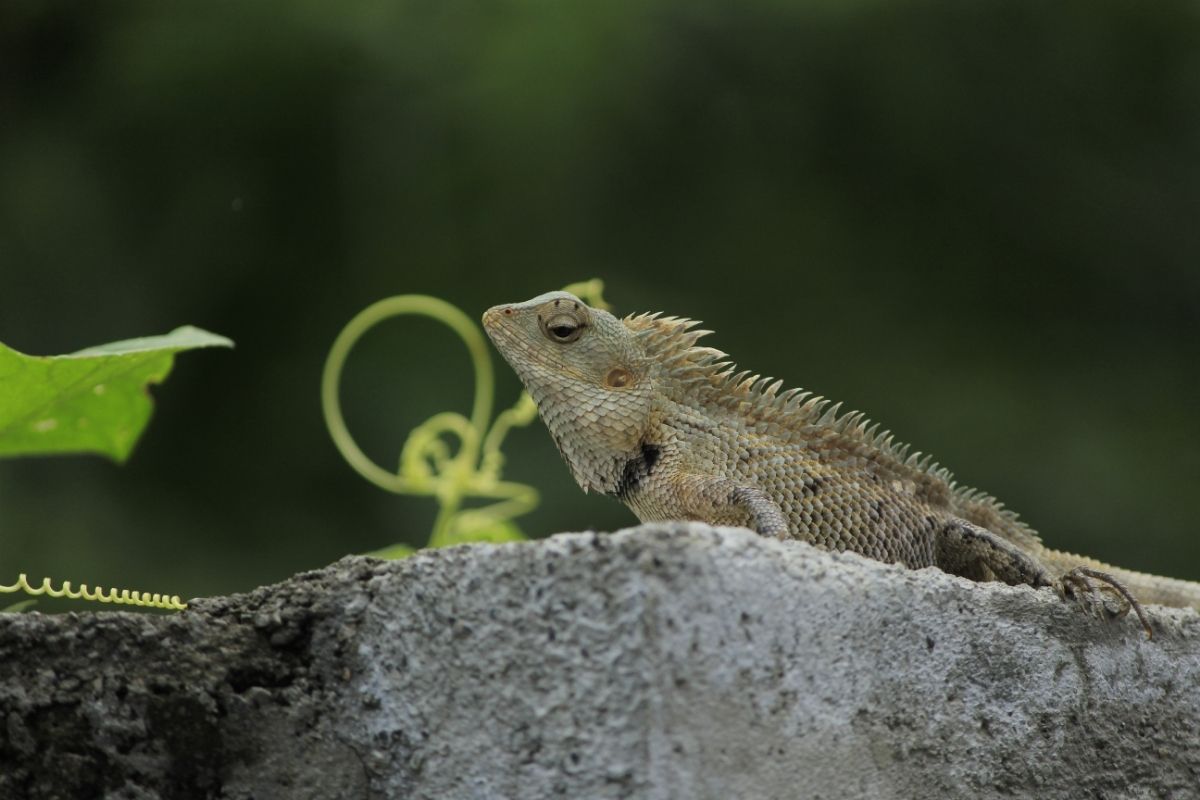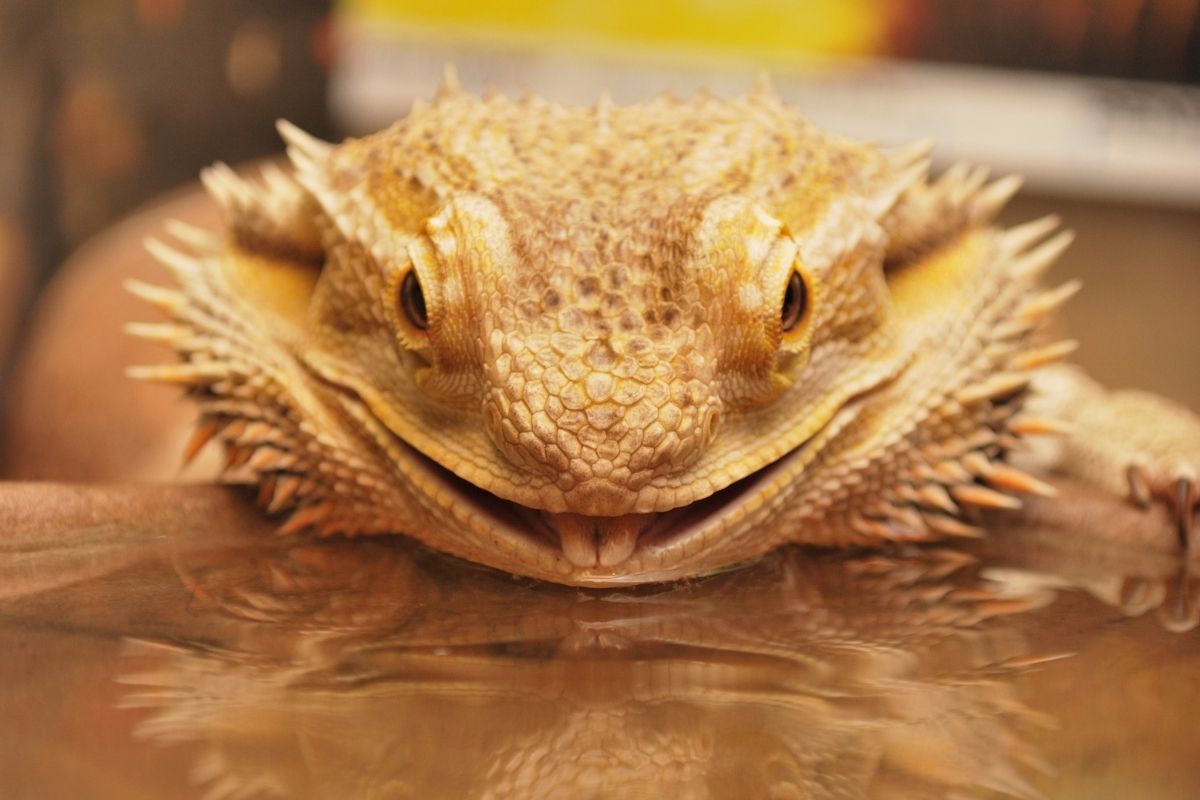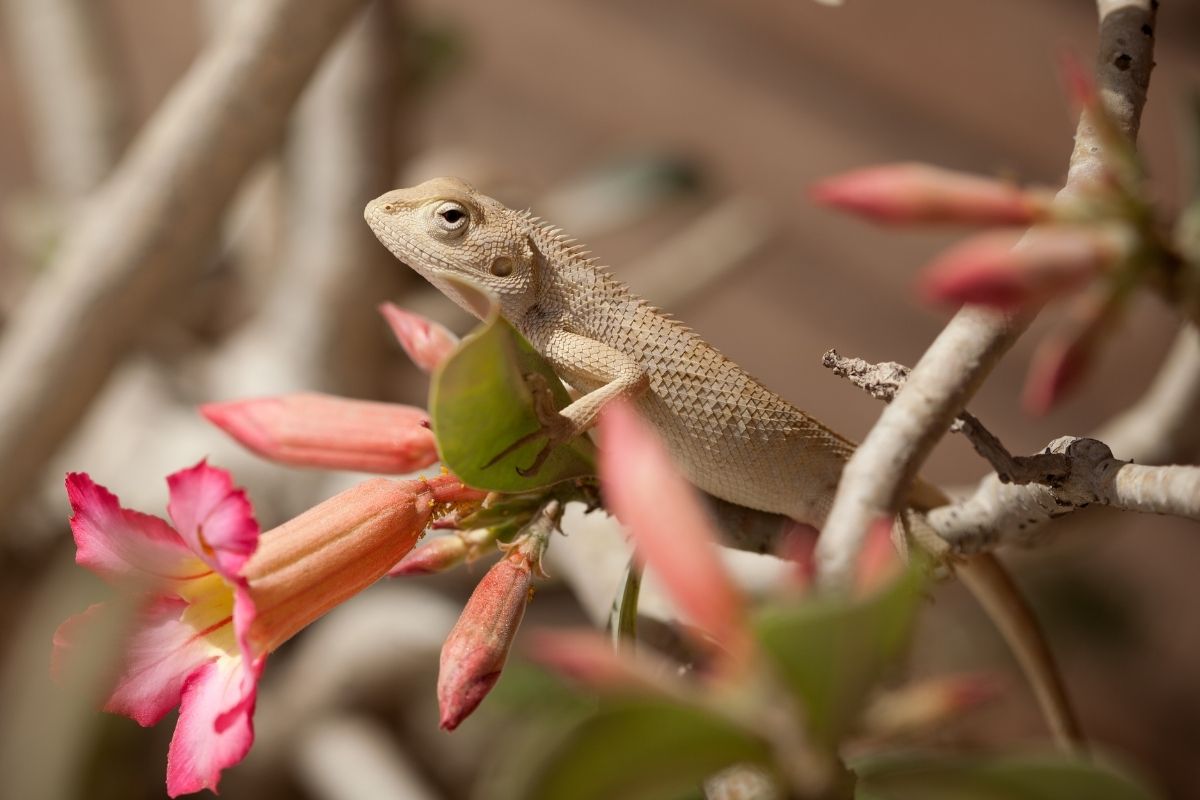Dehydration is something that we have all suffered with at least once.
People usually get dehydrated without even realizing it, and it is only once you get a big headache that you realize that you have not had any water all day.

While people can easily understand and communicate that they are dehydrated, the same cannot be said for our pets.
For smaller animals and reptiles, it can be quite difficult to tell how much water they have drunk, or if they are dehydrated in general.
Naturally, this is the opposite of what you want for your bearded dragon.
You are most likely committed to ensuring the happiness and health of your bearded dragon, but often with these animals, it is very difficult to tell if their needs are being met in the right way.
In this article, we will cover everything you need to know about bearded dragon dehydration.
For example, did you know that a bearded dragon being dehydrated is not always a bad thing?
We will cover all of the symptoms of dehydration here, as well as offer simple solutions to this issue if you feel like your pet needs some extra help.
Bearded Dragon Dehydration Symptoms
The biggest and most obvious symptom of dehydration in bearded dragons is sunken eyes, though this can be a symptom of other things too, which can make diagnosis a bit confusing.
Additionally, this might be a sign of parasites or another ailment.
Another symptom is that their skin becomes very wrinkled. To detect whether your beardie is dehydrated, very gently tug on the dragon’s skin.
If it takes an extended period of time for the skin to return to normal, your beardie most likely needs some water.
Furthermore, you should exercise caution if your bearded dragon becomes too inactive and refuses to eat.
A bearded dragon that is unable to consume food is most likely unwell.
Impaction alone may be a sign of severe dehydration as well.
Why Is My Dragon Dehydrated?
If you are a good owner, then you may be offering plenty of water to your dragon. This will not stop them from becoming dehydrated though.
Here are the most common reasons why these reptiles get dehydrated so easily.
They Cannot See The Water
Do you have some water in a nice dish, but for some reason, your dragon never drinks from it?
This is because bearded dragons cannot see still water, they simply do not recognize it for what it is.
Bearded dragons drink only flowing water, such as dew drops.
Your dragon has learned that food can be found in the food bowl, but they often cannot recognize that water is in their water bowl.
As a little test, you could try to add water to their food bowl to see if they drink from it. If they do, you have a very intelligent pet on your hands.
In all likelihood though, they will take a quick glance at the bowl, think it is empty, and move on without a drink.
If this happens, you need to switch up your water methods a bit.
They Have Too Much Water

This sounds a bit backward, but a dragon having too much water in its diet can also make them dehydrated.
A lot of the greens used to feed these pets have a high water content, but too much water in their diets can make a dragon sick, with the most common result being that they have diarrhea.
This symptom makes them lose a lot of water quickly, which results in dehydration.
They Are Sick
You must ensure that your dragon is disease-free. Though impaction is a dehydration symptom, it does not mean that this is the only illness your pet has.
There is a chance that this impaction can be caused by your dragon eating the substrate in the tank, which is a possibility you should always be thinking about when buying substrate.
If your bearded dragon is refusing to eat, you should take it to a veterinarian immediately rather than attempting to treat it yourself.
The most typical indicators of dehydration include sunken eyes, a white component missing from your dragon’s feces, and wrinkled skin.
If your bearded dragon is active and eating, but has one or a few of these symptoms, it is most likely thirsty rather than sick.
How To Fix Dehydration
Here are a few ways to help your bearded dragon with dehydration.
Buy A Dripper
Bearded dragons, as we mentioned above, normally only drink flowing water.
If you have water in a dish, then they probably cannot see or recognize it as water.
If you wish to continue using a water dish but your bearded dragon refuses to drink from it, a dripper can be used to solve this problem.
Place the dripper over your dish and let it drip into the bowl very gently.
This way, your bearded dragon will be able to see that the dish is full of water as they can recognize the movement of the water.
Give Them A Bath
Bearded dragons love to swim, and often drink a lot of water while they are swimming.
If you want your dragon to drink a lot in one go, a bath is the best option.
Just one big bath now and then will be enough to hydrate your dragon, or you could have a small pool in their tank so they can have a little swim whenever they want.
Remember not to give them a large bath too often though as they may drink too much water, which can lead to over-hydration and make them feel unwell.
Mist Their Tank
Spray the tank with mist occasionally to ensure that your bearded dragon receives a proper amount of water.
You do not have to spray it every day, but you should do it consistently.
Bearded dragons eat dew drops from plants in the wild, most often in the morning, so you should try misting the tank in the mornings as well.
You should include some plants in your terrarium to aid your bearded dragon in drinking as this is where they usually get water from.
Always keep an eye on your humidity level as well.
While higher humidity promotes shedding, you should maintain a humidity level of between 30% and 40% during the day and roughly 55% at night.
Use A Pipette
If your dragon is struggling with drinking water on its own, then you may need to give them a hand.
The easiest way to do this is to fill a pipette with water, and then hold this close to the dragon’s mouth.
If your dragon is very thirsty, it will recognize the drop of water at the end of the pipette and drink it up quickly.
How Much Water Do Dragons Need?

Bearded dragons do not require a lot of water to survive. Beardies originated in Australia, where it hardly rains, so they are used to going without.
Bearded dragons drink as much water as possible when it rains, which is enough to last them a long time.
They do require humidity for shedding and egg deposition though, even though they do not consume a lot of water.
They receive water mostly through locusts, crickets, and other insects, but they do not consume a lot of water in the wild, which is quite natural.
Their bodies are adapted to dehydration. They do not sweat and do not lose a substantial amount of water when they breathe or urinate.
As a result, captive dragons only really suffer from dehydration due to the overconsumption of water, which causes diarrhea and leads to extreme dehydration.
Summary
To keep your bearded dragon perfectly hydrated, you should first only offer them one water source.
Make sure that this water is running or moving slightly or they will not recognize it or drink from it.
You should not give your dragon a water bowl and vegetables at once, as this may cause them to consume too much water and get sick.
You also should not mist the tank and give them vegetables on the same day either.
The key to bearded dragon hydration is to do everything in moderation so that they do not over or under-consume water as both can make them unwell.
